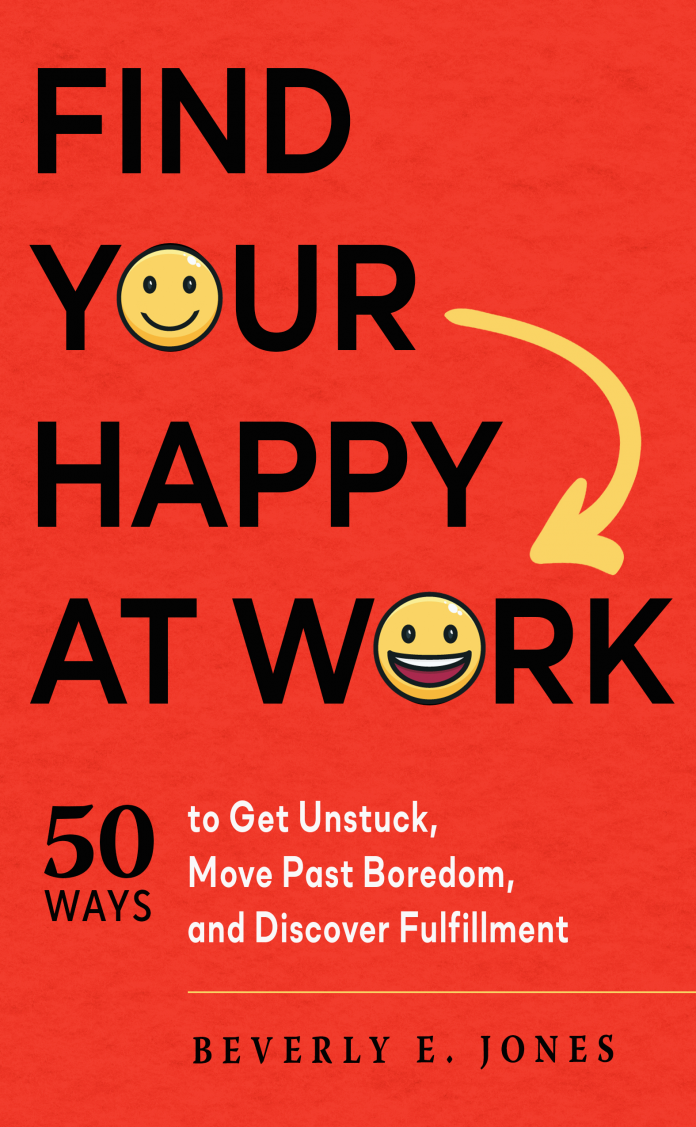
Book excerpt from Find Your Happy at Work; Career Press, Sept. 2021.
We’ve talked about why to vary your blocks of work time—and build in breaks—as you plan each day. You’re more effective when you oscillate between activities, shifting from deep work to multitasking, from pushing yourself to resting. It’s difficult to maintain a steady grind for hours at a time without losing efficiency. Occasionally changing gears makes concentrating easier, and your creativity and awareness are refreshed.
Another consideration when you’re laying out the day’s plan is how to schedule learning activities. Any day feels more rewarding if it includes intervals to stretch your mind and concentrate on something new.
In The Power of Mindful Learning, psychologist Ellen Langer says that finding a way to learn something new always makes work feel more like play. She says what makes a puzzle or game enjoyable is “the process of going from not knowing to know.” And it can be the same on the job.
Going further, Langer says work is more fun if we can focus on the nuances and find ways to deepen our understanding. Virtually any job offers more freedom to notice distinctions and possibilities than might first appear. Langer suggests finding them can be a matter of adopting a positive attitude and putting your mind to it. The more deeply you engage in a task, the more you’ll learn, and the more quickly time will speed by.
Part of the excitement that comes from learning is the thrill of satisfaction when you find each new thing. To our brains, acquiring a bit of understanding feels like a success. As we continue to make progress, small insights are rewarded with hits of dopamine.
Make learning a high priority in your career
Aside from making work more fun, committing yourself to continue learning can bring tremendous career benefits. Here are three more reasons to make learning activities a high priority in your career:
- To remain relevant. In a fast-paced world, no profession remains the same for long. Even if you’re at the top of your game now, your skills will become outdated if you don’t keep up with your field. The threat of obsolescence is just one side of the coin. On the other is the good news: your opportunities will increase as you expand your expertise and extend your ability to dive into challenging questions.
- To become more resilient. People who approach work in a spirit of learning may find it much easier to deal effectively with failed efforts. Avid learners tend to see the big picture and focus on the whole process. When the unexpected happens, they are able to step back, assess the situation, and quickly consider the next steps.
- To be authentic and centered. There’s a sort of chicken-and-egg loop between learning and positivity. When you’re truly involved in learning, you’re being totally yourself. You forget about what others think and keep diving further into the effort. In Never Stop Learning, Professor Bradley Staats suggests that as you keep going, you trigger a rewarding sense of mastery, autonomy, and purpose. As you focus more completely, the authenticity of your effort triggers positive emotions, which motivate you to learn even more.
There are many ways to inject more learning into your job
If you contemplate your calendar, your work habits, and the people you know, you’re likely to spot opportunities to build more learning into many days. These suggestions can help make learning a bigger part of your job:
- Keep a learning list. When you catch yourself thinking “that sounds interesting” or “I wish I knew more,” make a note. Always maintain a list of possible learning topics, and create study plans for when you have a few free minutes.
- Try micro-learning. Building knowledge in tiny steps has been around for a long time. I recall word-of-the-day desk calendars and foreign language flashcards from my childhood. Now there are endless options for ordering up bitesize content. Depending on your field, you can find TED Talks that are right on target, free courses featuring five-minute modules, daily newsletters, and apps that feature games to help you build skills.
- Get more from your daily activities. Often we attend meetings and join calls without fully tuning in to what’s going on. Almost everywhere you go, there’s an opportunity to learn if you decide to focus. One habit of constant learners is mindful engagement, which means paying attention to whatever is going on right now.
- Listen and ask. Learn more by rejecting the assumption that you know everything about anything. Remind yourself that there’s always a good chance of additional information. In meetings, this might mean forcing yourself to listen carefully, even if your kneejerk reaction is “this is boring.” Find times to ask others for a different perspective and listen without judgment to what they have to say.
- A terrific way to master a topic is to teach it to somebody else. You don’t need to have the expertise when you start. If a new technology is interesting, or an emerging trend seems relevant to your team’s work, volunteer to learn about it and then report back to the group.
- Interact with well-informed people. Open minds can be contagious. A good way to become a stronger learner is to regularly spend time with broadly educated, intellectually curious people.
- Be a specialist and a generalist. Constant learning is necessary for keeping your professional skills up to date. But Professor Staats says that, while it’s important to keep growing your specialized expertise, a thriving career requires more. In a world where everything is connected and innovation jumps from industry to industry, the savviest learners also pursue variety. They keep looking for interesting new developments, and they are as willing to study fresh topics as humble beginners.
- Schedule time for deep learning. Some pursuits are well suited to gradual micro-learning, but complicated topics require lengthier dedicated time blocks. Analyzing new developments in your area of expertise or studying emerging trends may require you to focus on the material, read with care, ponder, and probably make notes. Deep learning involves a commitment, starting with finding time on your calendar.
- Get smarter. We humans are good at building skills and expanding our abilities. Just like building your muscles, you can improve your cognitive functioning and build a stronger brain. You can increase your intelligence by challenging yourself with difficult reading or demanding new activities. You can expand your capacity to do good work by pursuing stretch goals. Even if you don’t feel talented, you can increase your skill at just about anything by practicing it, frequently and mindfully.
Key Takeaway
Continuous learning is vital to a satisfying career. Acquiring knowledge and competencies to expand your skillset is a good way to attract an interesting flow of opportunities.
Beyond keeping you relevant in your current field, continuous learning will help you understand the broader world and prepare for the unexpected. Being knowledgeable will broaden your range of future options and help you innovate in the job you have now.
Most important, learning is fun. It can transfer routine work into a continuing adventure. And constant learners tend to be interesting to other people.
Book link: https://www.amazon.com/Find-Your-Happy-Work-Fulfillment/dp/1632651866/




